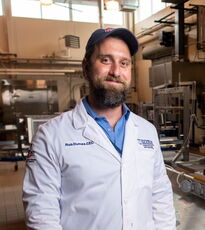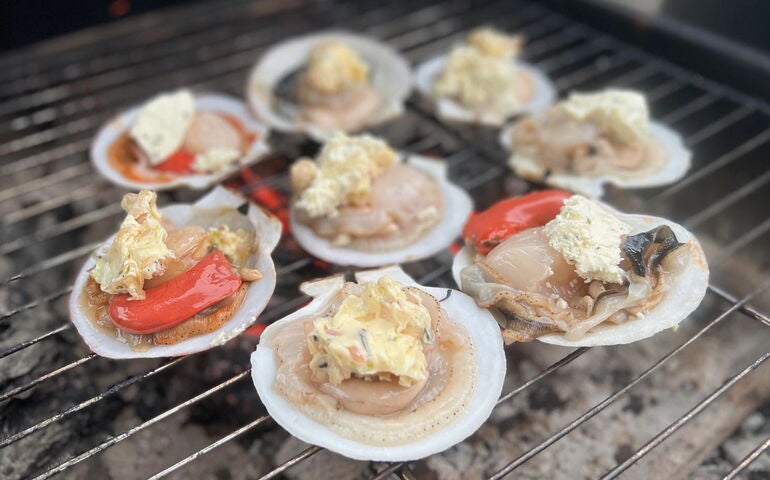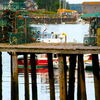
Processing Your Payment
Please do not leave this page until complete. This can take a few moments.
- News
-
Editions
-
- Lists
-
Viewpoints
-
Our Events
-
Event Info
- Women's Leadership Forum 2025
- On the Road with Mainebiz in Bethel
- Health Care Forum 2025
- On The Road with Mainebiz in Greenville
- On The Road with Mainebiz in Waterville
- Small Business Forum 2025
- Outstanding Women in Business Reception 2025
- On The Road with Mainebiz in Bath
- 60 Ideas in 60 Minutes Portland 2025
- 40 Under 40 Awards Reception 2025
- On The Road with Mainebiz in Lewiston / Auburn
- 60 Ideas in 60 Minutes Bangor 2025
Award Honorees
- 2025 Business Leaders of the Year
- 2024 Women to Watch Honorees
- 2024 Business Leaders of the Year
- 2023 NextUp: 40 Under 40 Honorees
- 2023 Women to Watch Honorees
- 2023 Business Leaders of the Year
- 2022 NextUp: 40 Under 40 Honorees
- 2022 Women to Watch Honorees
- 2022 Business Leaders of the Year
-
-
Calendar
-
Biz Marketplace
- News
-
Editions
View Digital Editions
Biweekly Issues
- April 21, 2025 Edition
- April 7, 2025
- March 24, 2025
- March 10, 2025
- Feb. 24, 2025
- Feb. 10, 2025
- + More
Special Editions
- Lists
- Viewpoints
-
Our Events
Event Info
- View all Events
- Women's Leadership Forum 2025
- On the Road with Mainebiz in Bethel
- Health Care Forum 2025
- On The Road with Mainebiz in Greenville
- On The Road with Mainebiz in Waterville
- + More
Award Honorees
- 2025 Business Leaders of the Year
- 2024 Women to Watch Honorees
- 2024 Business Leaders of the Year
- 2023 NextUp: 40 Under 40 Honorees
- 2023 Women to Watch Honorees
- 2023 Business Leaders of the Year
- + More
- 2022 NextUp: 40 Under 40 Honorees
- 2022 Women to Watch Honorees
- 2022 Business Leaders of the Year
- Nomination Forms
- Calendar
- Biz Marketplace
Maine scallop ambassadors journey to France for culinary exchange
 Courtesy / Togue Brawn
Whole scallops, farmed by Andrew Peters of Vertical Bay, were prepared on a grill with compound butter.
Courtesy / Togue Brawn
Whole scallops, farmed by Andrew Peters of Vertical Bay, were prepared on a grill with compound butter.
Two months ago, members of Maine’s scallop industry served up their catch, both wild and farmed, in New York City at a French culinary forum hosting scores of professional chefs.
This week, Maine’s ambassadors for the tasty shellfish are in France to explore techniques there for handling and preparing scallops.
The goal of the group — chefs, seafood professionals, writers, economic development specialists and educators — is to use what they learn to support scallop farming and commercial fishing sectors in Maine.
“Our group’s trip to learn about the French scallop industry will help inspire and inform our efforts to get chefs thinking about using more of the scallop, how to tell the story of scallop sustainability through the lens of both environmental and economic perspectives, and how to better market Maine scallops as a world-class product,” said Rob Dumas, the University of Maine’s food science innovation coordinator and manager of the Dr. Matthew Highlands Pilot Plant.

The trip, scheduled for April 14-22, was made possible by a grant from the NOAA National Sea Grant Office to the Maine Sea Grant College Program.
The group’s itinerary includes Paris, Normandy and Brittany, wrapping up with a scallop festival in Paimpol this weekend. The expedition will be followed by educational programming led by Dumas to share what the group learned from its travels with other chefs and culinary professionals.
Lessons for Maine
What lessons might be imported back to Maine?
“In general, in my experience with French cooking and my understanding of the French relationship with scallops, there’s a longer history there and a there’s a deeper affection for scallops as food in France,” Dumas told Mainebiz. “There’s even a brotherhood of people who get together to eat scallops.”
Because of that cultural connection and historical significance, France stood out to the group as a prime spot for learning more about scallops, he said.
An additional attraction to France is consumer similarities.
“A lot of our own cuisine has been shaped by French and European influences, so we thought there would be easy pathway forward for American consumers to adopt new techniques,” he said.
The French tend to use the whole scallop, while U.S. cuisine has focused on the animal’s adductor muscle, he noted. There could be culinary value to U.S. cooks in learning how to employ the whole animal, he said.
The adductor muscle is the marshmallow-shaped meat that allows the scallop to open and close its shell. Other edible parts include the roe, which is sometime called coral.
“I’m hoping that France can give us inspiration and lessons that we can bring back and communicate to chefs and food service workers,” he said.
Who is involved
Traveling with Dumas are:
- Dana Morse, senior extension program manager and aquaculture lead at Maine Sea Grant and University of Maine Cooperative Extension based at the Darling Marine Center in Walpole;
- Togue Brawn, owner and founder of Downeast Dayboat, a distributor of wild and farmed scallops headquartered in Bath with a processing facility in Portland;
- Hugh Cowperthwaite, senior program director of fisheries and aquaculture for Coastal Enterprises Inc.;
- Jean-Louis Gerin (host and guide), a James Beard Award-winning chef and a dual citizen of the U.S. and France;
- Sam Hayward, a James Beard Award-winning chef and co-owner of Fore Street Restaurant in Portland;
- Rowan Jacobsen, author of “A Geography of Oysters”;
- Andrew Peters, owner of Belfast scallop farm Vertical Bay Maine;
- Lisa Scali, co-owner of Ocean’s Balance, a Biddeford maker of seaweed products; and
- Cherie Scott, owner and founder of Mumbai to Maine LLC and maker of award-winning gourmet regional Indian simmer sauces.
“The quality of dayboat scallops from Maine is finally getting the long overdue recognition it deserves,” said Brawn. “Scallops from different areas have different flavors (merroirs) and Maine is the only state in the country offering whole cultivated scallops.”
Brawn has previously said that since Maine’s small-boat scallop fleet lands scallops the same day they’re harvested, their freshness and flavor are preserved.
Less well known to chefs and consumers are products from the farm sector: whole scallops, roe-on and dishes made with other parts of the scallop beyond the adductor muscle, according to a news release.
The nascent farm sector is growing. According to Maine Department of Marine Resources’ landings data, Maine farmed scallop production was valued at $81,629 in 2021, $103,220 in 2022 and $584,691 in 2023.
“Growers have really gotten their feet under them, and it shows in their production practices and the landings themselves,” said Morse.
With the farm sector increasing production, the opportunity and challenge is to introduce culinary opportunities to chefs, according to the release. Americans eat most of their seafood in restaurants, so chefs are considered to be potential ambassadors of new scallop products.
The group will meet with chefs, fishermen, retailers, restaurateurs and scientists. Gerin helped the group establish connections in France and is serving as the host and guide.
Scallop recipes
A cookbook titled “Recipe Ideas for Farmed Sea Scallops: The Whole Story" was written in 2020 by two Stonington residents, local Maine fisherman Marsden Brewer and natural history writer Marnie Reed Crowell. Click here for a digital version of the publication on the PenBay Farmed Scallops website.














0 Comments